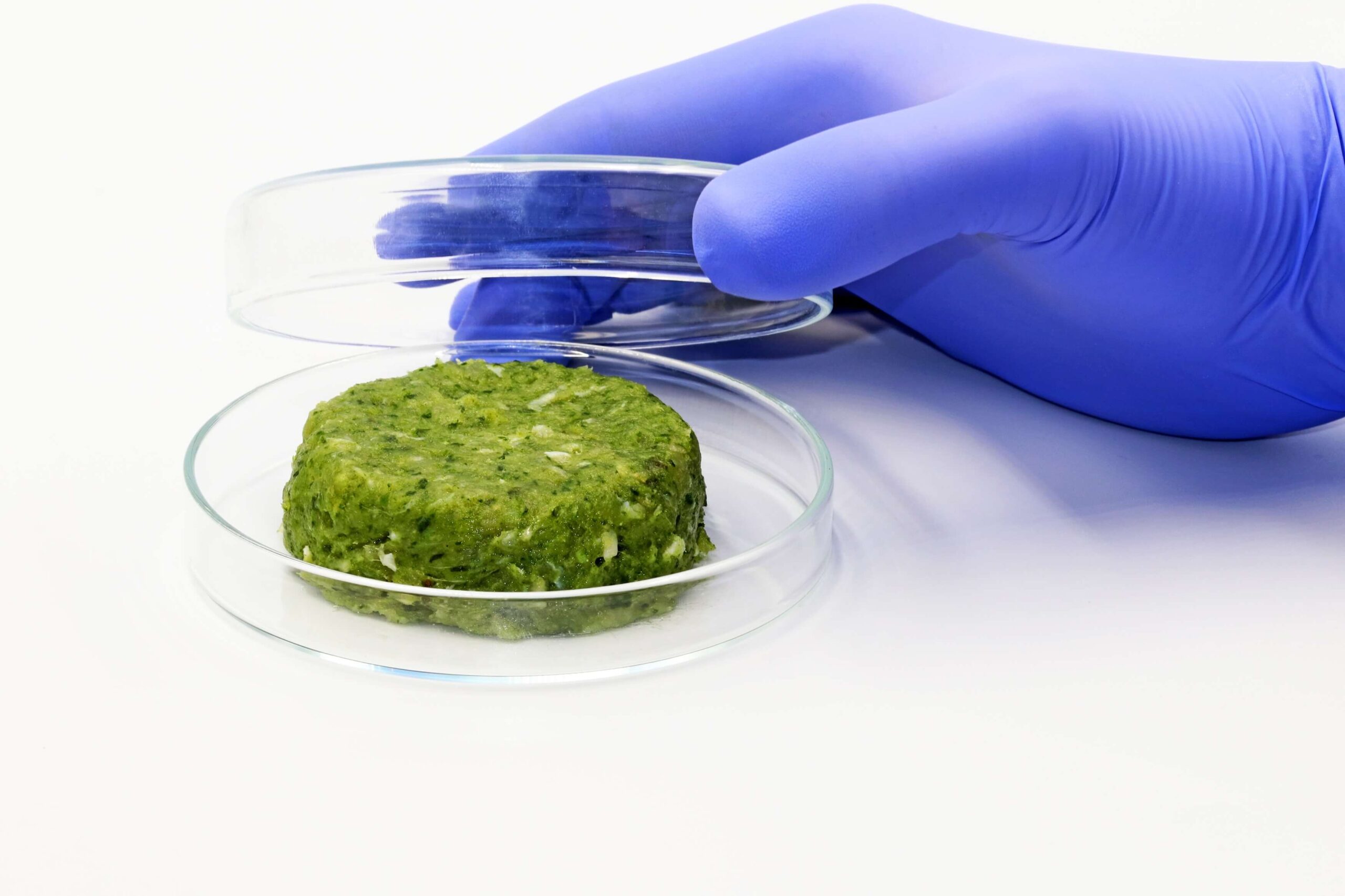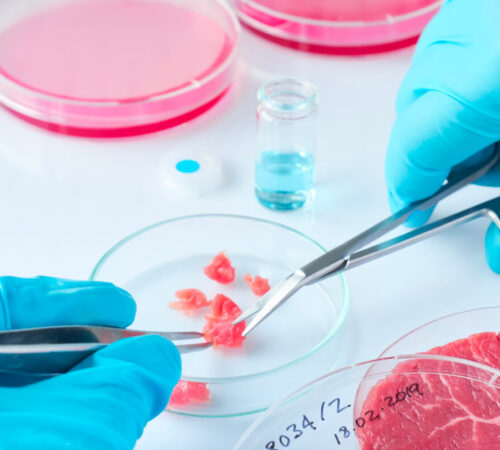


The process of producing cultured meat, also known as clean, cultivated, synthetic, or artificial meat, involves extracting a few cells from an animal through a biopsy. The cells are then placed inside a bioreactor, where they are nourished with a culture medium rich in amino acids and vitamins. The final product has a structure, composition, and nutritional values similar to those of meat obtained through traditional methods.
Several studies have demonstrated that the production of cultured meat uses soil much more efficiently compared to the production of poultry and beef, with savings ranging from 60 to 300 percent for poultry and from 2000 to 4000 percent for beef.
Cultured meat also represents a tool that could play a central role in ensuring greater protection of the right to health, thanks to its reduced bacterial load and absence of antibiotics, as well as the possibility of regulating the content of saturated fats or other harmful nutrients.
Fermentation is a process that utilizes microorganisms for the production of alternative proteins. Like plant-based and cultivated meat, proteins derived from fermentation are better for the planet, people, and animals.
Mycelium, microalgae, microorganisms, and fermented plant proteins can provide the sensory experiences and positive nutritional aspects of animal products, but without undesirable substances such as cholesterol, antibiotics, and hormones. In addition to being produced in themselves, ingredients obtained through fermentation can be used for plant-based or cultivated products.
For plant-based, egg, and dairy alternatives, traditional fermentation can help optimize the digestibility, taste, texture, and nutrients of existing plant-based ingredients.
In the field of cultivated meat, fermentation can contribute to efficiently producing nutrients and growth factors for cell culture media. Furthermore, proteins such as collagen or fibronectin produced through fermentation can be key animal-free components for constructing more complex cultivated meat products.
